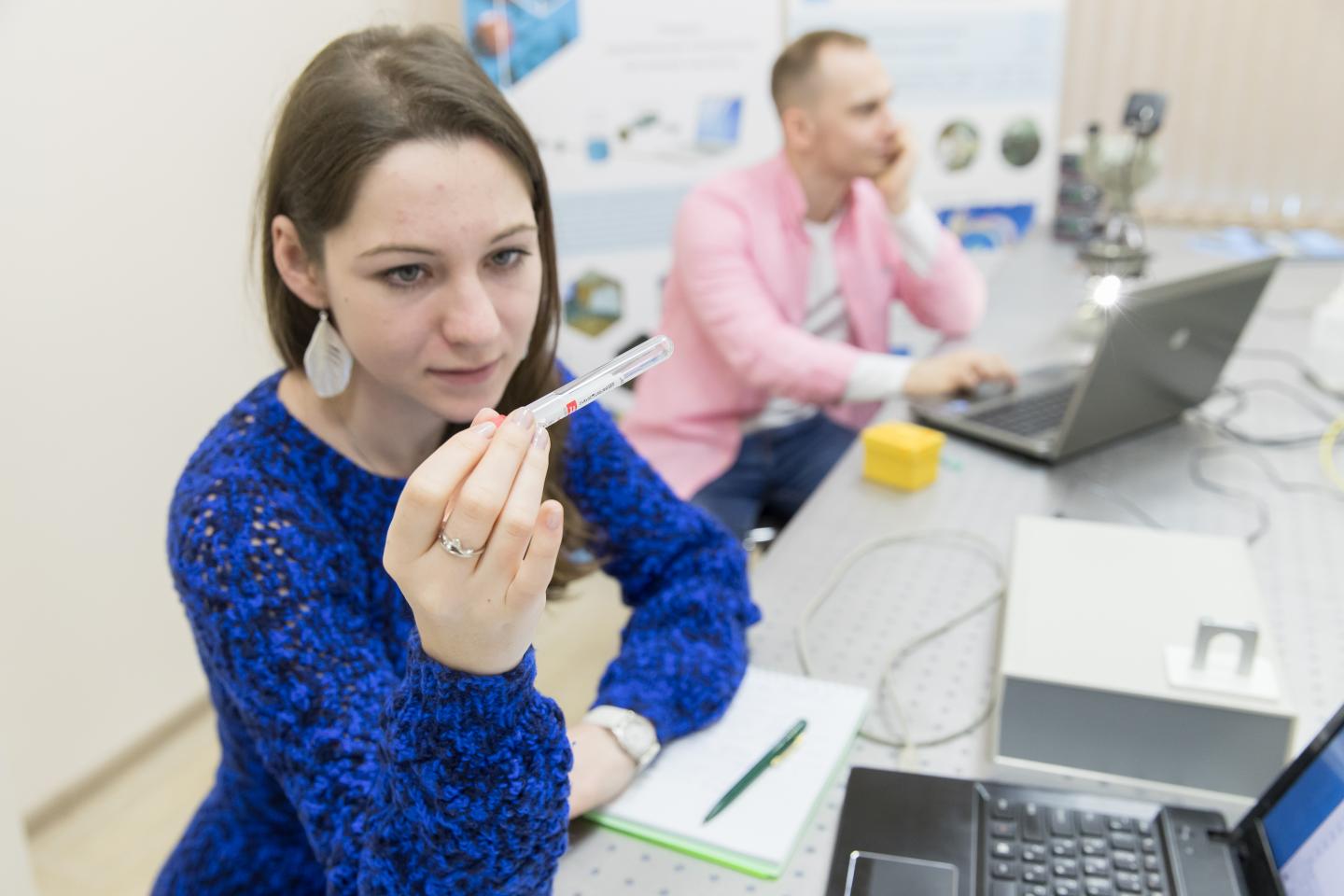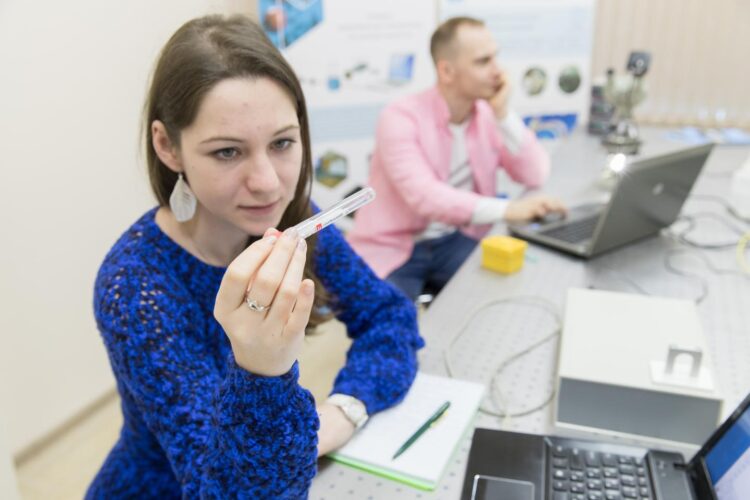Researchers developed a new dynamic light scattering method to determine the sizes of circulating immune complexes in blood serum

Credit: Peter the Great St.Petersburg Polytechnic University
Researchers of Peter the Great St.Petersburg Polytechnic University(SPbPU) in collaboration with colleagues from Tsinghua University (China) developed a new dynamic light scattering method to determine the sizes of circulating immune complexes in blood serum. The results of the study were published in the first quartile Biology Journal, MDPI Publishing House. Scientists mentioned, that this method is fast, contactless, safe and cheap. That why it could be used in blood screening studies, for example, as part of regular medical examinations.
The scientific group of the Higher School of Applied Physics and Space Technologies SPbPU investigated how the immune complexes are formed in blood serum. The immune complexes are molecular aggregates, which consist of antigens, antibodies, and proteins of the immune system. The size and concentration of such immune complexes indicate the state of the immune system. Normally a certain concentration of the immune complexes presents in blood serum, high concentration of immune complexes is formed due to the pathological condition.
The international scientific group investigated the blood serum of donors with various pathologies, such as autoimmune diseases, cancer, diabetes mellitus, etc.
According to scientists the increased (compared with the average) size of the immune complexes indicates the presence of diseases, and by itself can have a potentially negative effect on the state of the body. A high concentration of the newly formed immune complexes can disrupt the functioning of the immune system. These complexes can clog microcapillaries, or accumulate in the tissues, causing chronic inflammatory processes.
“We found out, that the infection in the body leads to the formation of a large number of the immune complexes in the blood,” said Elina Nepomnyashchaya, an employee of the Laboratory for Laser Photometry and Spectroscopy of St. Petersburg Polytechnic University.
Elena Velichko, Head of the Laboratory of Laser Photometry and Spectroscopy SPbPU, notes: “Our method is quite fast, it doesn’t require the use of specific expensive antigens. Its work is based on the interaction of laser radiation with serum or plasma proteins. Using the developed method, we were able to trace the activation path of the immune system in the blood. Our results can be used in pharmacology for drug testing and in the modern preventive diagnosis of immune diseases.”
The research is carried out jointly with medical institutions of St. Petersburg (Russia). In future, the scientific group plans to conduct research with the fellow biologists to determine how different substances affect the activation of the immune system.
Subsequently, scientists plan to study the disorders of the immune system due to cancer. Researchers hope to “teach” the immunity to recognize the cancer cells and to recover.
###
Media Contact
Raisa Bestugina
[email protected]
Related Journal Article
http://dx.





